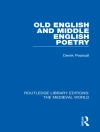Postcolonialism has become one of the most exciting, popular and stimulating fields of literary and cultural studies in recent years. Yet the variety of approaches, the range of debate and the critical vocabularies often used may make it challenging for new students to establish a firm foothold in this area.
Beginning Postcolonialism is a vital resource for those taking undergraduate courses in postcolonial studies for the first time and has become an established international best-seller in the field. In this fully revised and updated second edition, John Mc Leod introduces the major areas of concern in a clear, accessible and organised fashion. He provides an overview of the emergence of postcolonialism as a discipline and closely examines its many established critical approaches while also exploring important recent initiatives in the field. In particular, Beginning Postcolonialism demonstrates how many key postcolonial ideas and concepts can be effectively applied when reading texts and enables students to develop their own independent thinking about the possibilities and pitfalls of postcolonial critique.
表中的内容
Acknowledgements
Preface to the second edition
Introduction
1. From ‘Commonwealth’ to ‘Postcolonial’
2. Reading colonial discourses
3. Nationalist representations
4. The nation in question
5. Re-reading and re-writing English literature
6. Postcolonialism and feminism
7. Diaspora identities
8. The limits of postcolonialism?
Appendix: ‘The Overland Mail (foot-service to the hills)’ (Rudyard Kipling)
Further reading
Index
关于作者
John Mc Leod is Lecturer in English at the University of Leeds












